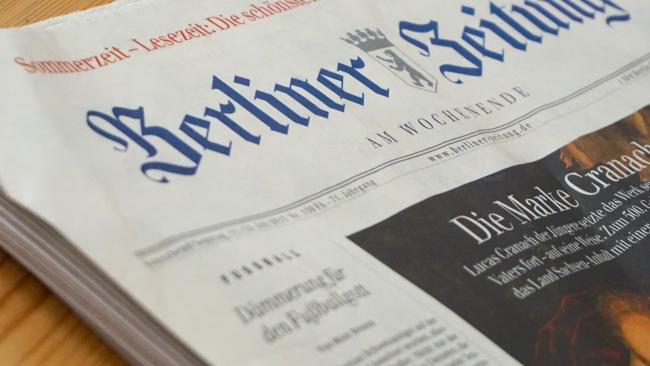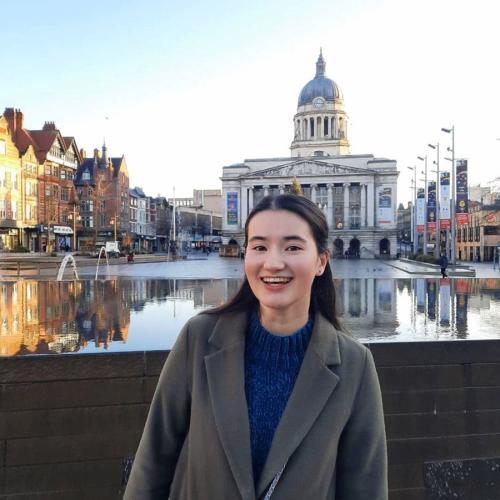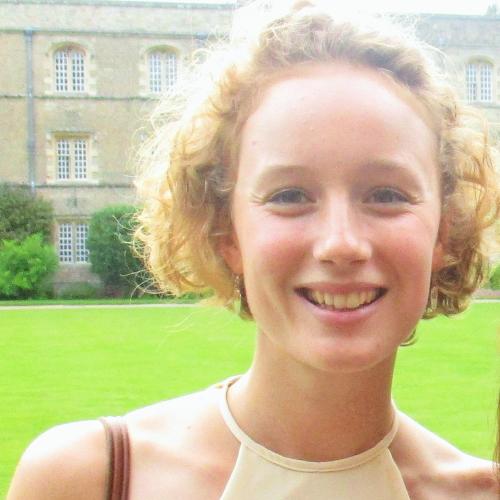
Modern and Medieval Languages
- Number of students per year: six to eight
- Typical offer: A*AA or equivalent; we accept a wide range of
- Essential subjects: A-Level (or equivalent) in at least one of the languages you want to study
- Useful subjects: Other languages and English (literature or language), History, Mathematics
At ╠└═╖╠⌡╘¡┤┤ we have teaching Fellows in the following modern languages:
- French
- German
- Russian
- Spanish
- Portuguese.
They teach the Modern and Medieval Languages (MML) students in the College in their special areas of expertise. Students of Italian are taught by Italian Fellows in other Colleges.
Every year a French Lectrice or Lecteur from the the École Normale Supérieure (ENS) in Paris spends a year in College, and one of our students can go to the ENS for their year abroad in exchange.
There's also a thriving Modern LinguistsΓÇÖ Society which once or twice a term puts on talks by writers, academics, and journalists. We've also had former students giving talks on their careers after graduation.
Requirements
Conditional offers are typically A*AA grades at A-Level, though each offer is individually determined and sometimes we'll vary it. The A* doesn't normally have to be in a modern language. You don't need to take Advanced Extension Awards.
A full A-Level or equivalent in at least one modern foreign language is essential. We're very open minded in respect of other AS and A-Level subjects: languages and English are obviously particularly relevant, but we're also perfectly happy with other arts or social science subjects, Mathematics and the sciences.
Your academic potential, suitability, and keenness for the course are more important than the combination of subjects you're studying for AS and A-Level.
Written assessment
Applicants who are shortlisted for interview will need to sit a written assessment. This will involve writing in one of the languages you wish to study and also a response in English. The assessment will be considered as part of your application, but won't necessarily be discussed in your interview. More information will be provided to shortlisted candidates and you do not need to register for this assessment in advance.
Interviews
Interviews are an important part of the selection process. We're looking for applicants with the greatest academic potential, who are able and willing to think for themselves, and who are well motivated, whatever the languages they propose to study. There's no fixed quota of student numbers for any language.
In 2024-25, weΓÇÖll be interviewing shortlisted applicants virtually, with interviews taking place in December.
The interview process aims to assess your intellectual ability, potential, and commitment to the subject. Candidates are typically interviewed by at least three subject specialists, including the Director of Studies, and total contact time will be between 35-50 minutes in total. This could be in a single interview, or in two separate interviews. Further details will be made available to candidates closer to the time.
Part of the interview will be conducted in the language you wish to study, unless you are planning to start learning a language from scratch, in which case the interview will be held in English and will include discussion of that language and culture. Both types of interviews will generally include discussion of a short written text that will be supplied for you to read before the interview.
.
Written work
You'll need to submit two pieces of written work prior to interview. These should be recent examples of writing completed for school, one of which should be in one of the languages you intend to study at University.
International applicants
We mostly refer to A-Levels and the International Baccalaureate for our entry requirements, but we accept a wide variety of qualifications from all over the world. The University website lists the . We expect students to be on track to achieve the highest grades in whichever qualification system they are studying. See our dedicated page for international students for more information.
Deferred and post A-Level entry
The College is happy to consider applications for either immediate or deferred entry in Modern and Medieval Languages.
We're also happy to consider post A-Level applications from those who have already achieved (normally) A*AA in A-Level, including at least an A in a modern foreign language. You'll have to go through the normal competitive process with other applicants. We're also happy to consider second time applicants without prejudice.
Mature students are welcome to apply. You should ideally be working on or have recently completed a course such as A-Level, Open University foundation course, or Access to Higher Education. If you are in any doubt about your preparation for a university course, or your choice of College, please get in touch.
Find out how to apply to study at Jesus.




